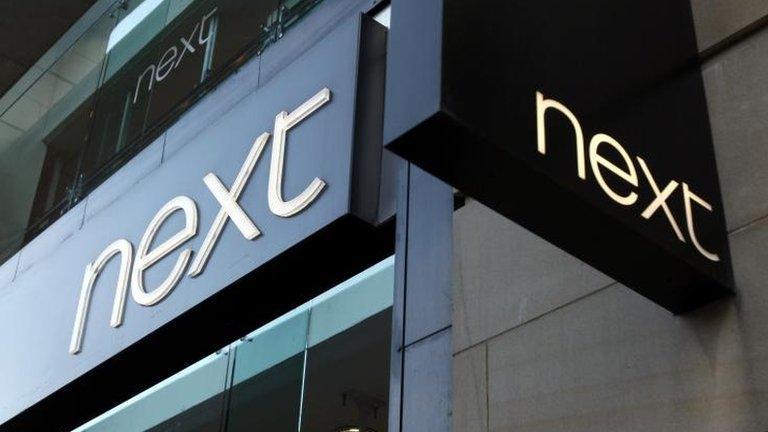What Next tells us about shopkeepers' woes
- Published
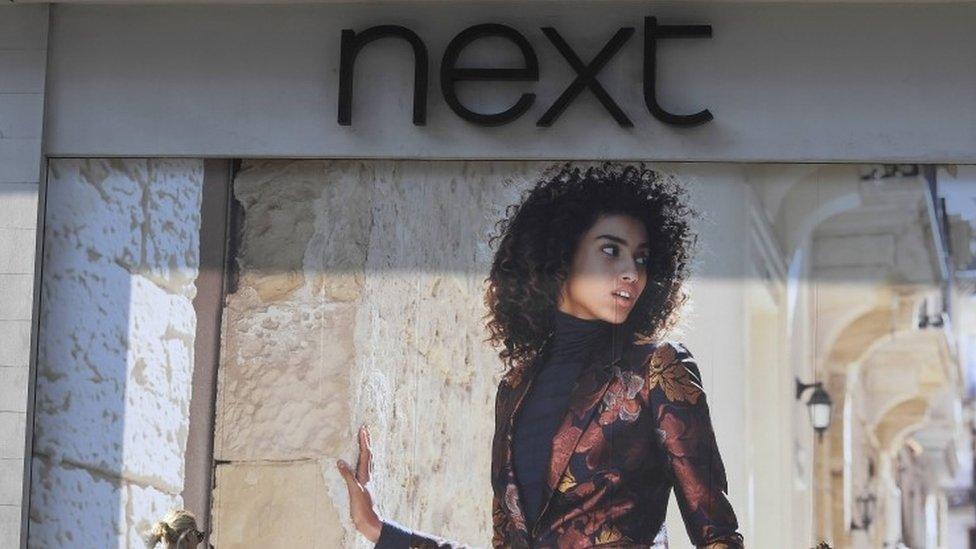
If you want a clear explanation of what's wrong with the retail sector, read Next's results statement.
Not a recommendation you'd hear very often, frankly, about most companies' financial reporting.
But rather than seeming designed to confuse and mislead, Next's report crisply spells out the challenges it's facing.
And of course it's not just Next that's up against it, it's the High Street as a whole.
A stark reminder of the difficulties came just yesterday when "value" shoe retailer Brantano went into administration, its pricier sister company Jones Bootmaker is up for sale.
One of the administrators said the fall in the pound and a change in shopping habits were key factors.
'Asset or liability?'
Next's results reflect these trends in spades. Its annual profits have fallen for the first time in eight years and it doesn't seem in the mood to pull any punches.
The most obvious challenge is the continuing gravitation to online shopping. Next Directory sales have been rising every year for the past 10. This time they rose by 4% to £1.7bn but sales in the stores - pretty much flat for the past 10 years - fell by nearly 3% to £2.3bn.
It's still a significant chunk of business, and as Next points out in its statement, it's still opening new shops.
However, it concedes that with increasing amounts of business being transferred online "it is legitimate to question the long term viability of retail stores and whether the possession of a retail portfolio is an asset or a liability".
Drinks not dresses
Its conclusion is that the stores are indeed "valuable" assets which will remain profitable "even in very difficult circumstances".
Nevertheless it has painstakingly worked through a scenario of what would happen if retail sales continued to decline at "high rates" for the next decade, and it says the stores could be "managed down profitably".
Another issue which leaps out from the pages of Next's statement is the change in what the UK consumer is prepared to spend money on.
A new dress or pair of shoes is no longer the go-to quick fix of choice, it seems.
Instead Next quotes Barclaycard figures which show the growth in spending on pubs, restaurants and entertainment, compared with High Street clothing in the last three months of 2016. "We believe that these numbers demonstrate the continuing trend towards spending on experiences away from 'things'," says Next.
"Shifts in consumer spending patterns are not unusual and we expect that the trend will stabilise and reverse at some point," it continues.
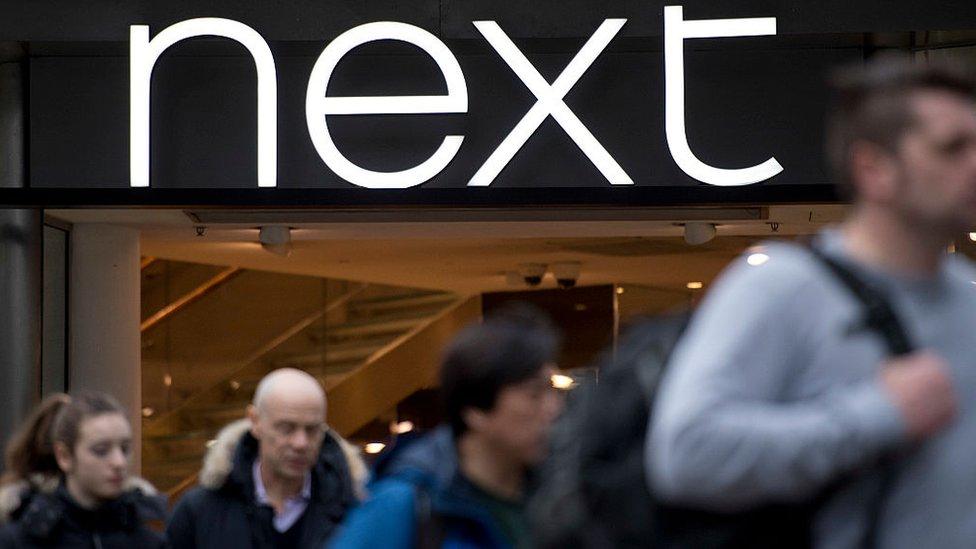
Is it all gloom for Next's stores?
'Continuing squeeze'
As if the fickleness of shoppers were not enough, of course, consumers have finally woken up to the fact that higher inflation means their money spreads more thinly.
The fall in sterling since the Brexit vote has pushed up the cost of imports for the likes of Next, although it says it doesn't expect price rises to be any worse in the second half of the year, and "they may be a little better".
Nevertheless, it doesn't see inflationary pressures easing until the second half of next year.
Meantime, it says, inflation is "slowly rising to the level of general wages growth and look set to continue to do so for the remainder of the year, we therefore expect a continuing squeeze on real incomes in the year ahead".
Added to this Next has is own internal problems which it's dealing with, including taking its eye off the ball in terms of stocking its "heartland" products. That is "easy to wear styles that can be delivered in large volumes and great prices across several colours".
Strength
In short, Next reckons the year ahead looks "tough" with a "combination of economic, cyclical and internal factors working against us".
But it's worth remembering this is not the first time Next - or retailers in general - have confronted such a mountain of adversity.
Back at the start of the financial crisis in 2008, the number of retailers exiting the High Street seemed unstoppable. Woolworths went, and that was the last time Next saw profits drop.
As chairman John Barton points out today "by the following year our profits had started to grow again and our share price recovered strongly in the following years.
"I believe that by focusing on our core strengths as we did during 2008, we will see Next emerge from this period stronger than before" he adds.
Investors may well agree. Next's shares were up following the release of the results, and not just because they were a textbook example of how a company should get its message across.
- Published23 March 2017
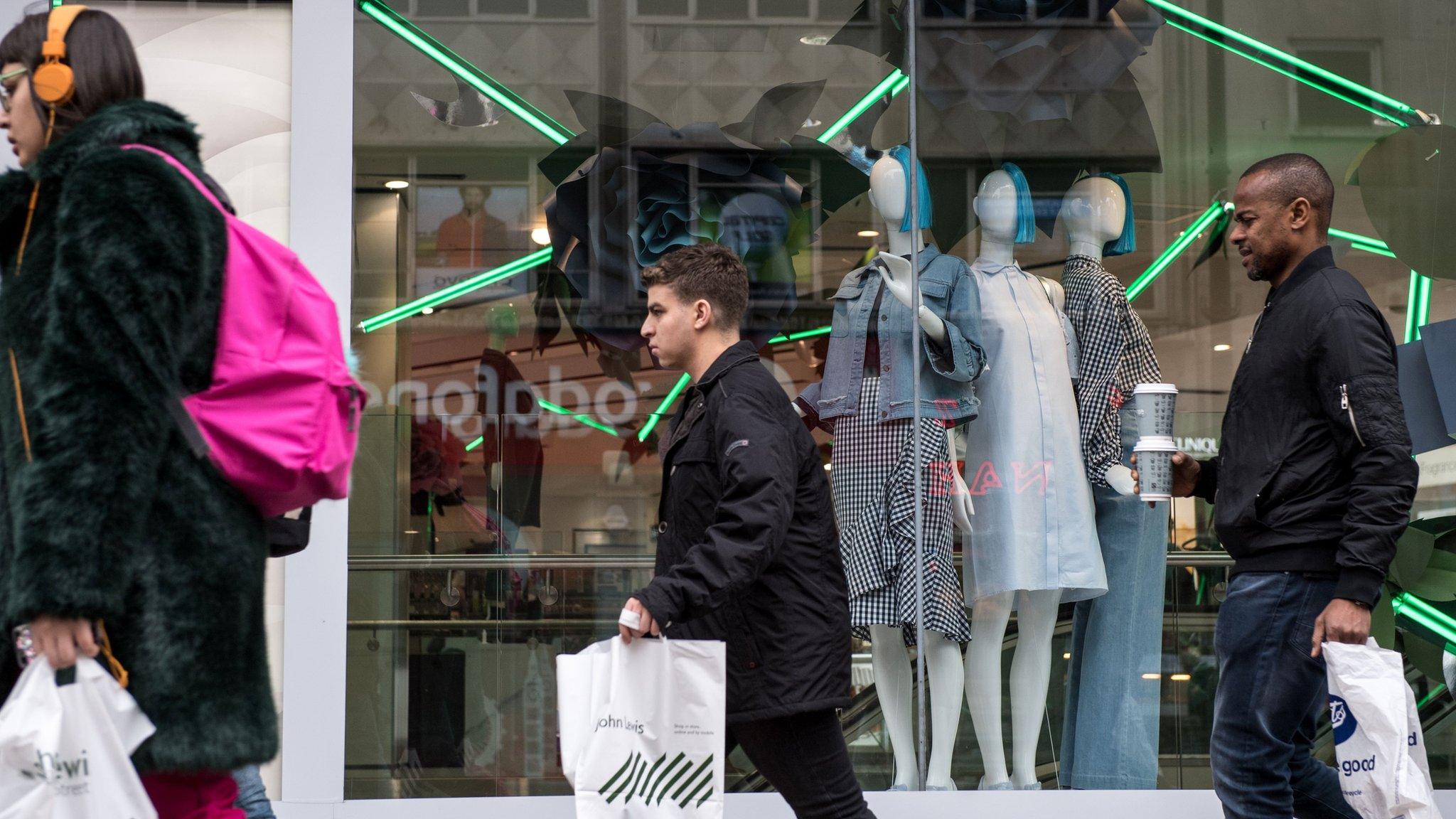
- Published17 February 2017
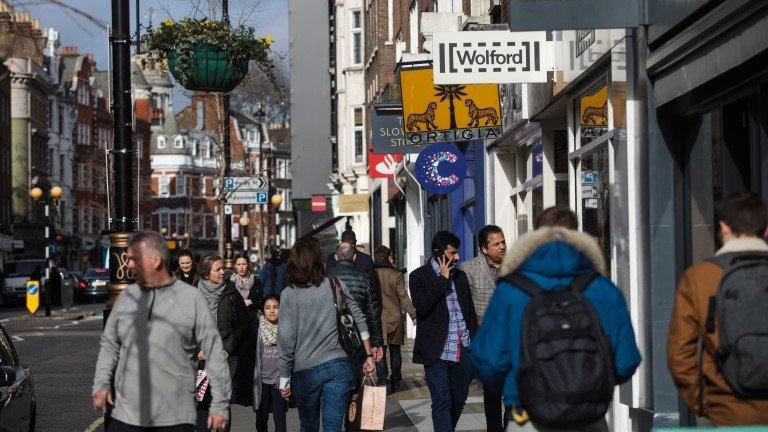
- Published2 November 2016
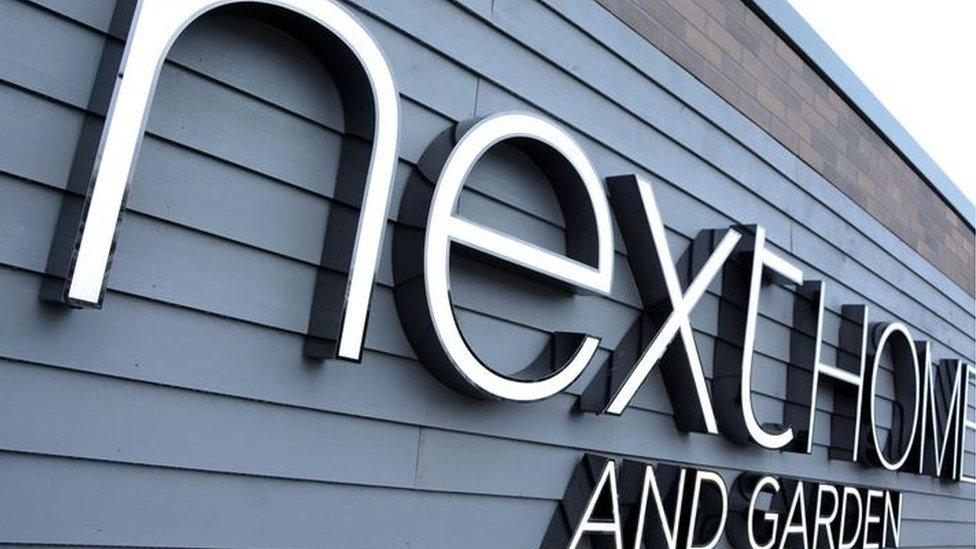
- Published4 May 2016
